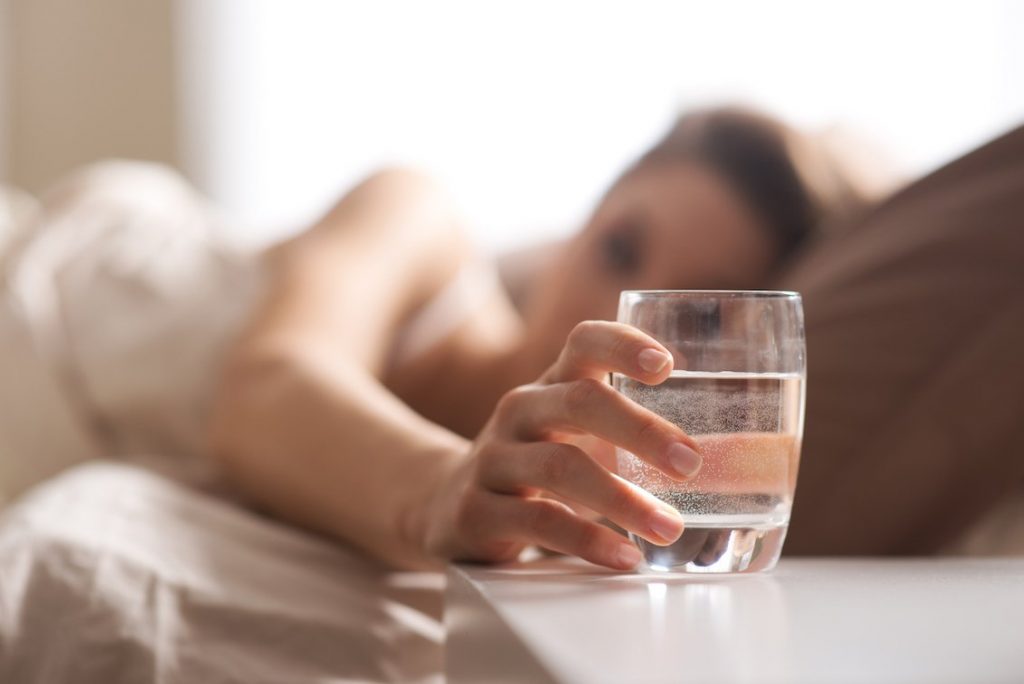Thirst is the feeling of needing to drink something. It occurs whenever the body is dehydrated for any reason. Any condition that can result in a loss of body water can lead to thirst or excessive thirst.
Once we drink, we feel satisfied
- The researchers from the California Institute of Technology have identified a set of neurons that receive messages which passed around the brain’s thirst centers. Hence, we sense satisfaction after drinking. The study was conducted on mice.
- As we become dehydrated, there is less water in your body. Thus, the thirst neurons in your brain send out the signal for the need for water. Once we drink, we feel satisfied instantly. Interestingly, when we drink water, it takes at least 10 to 15 minutes to make way into the blood from your stomach.
- It is an essential mechanism involved in fluid balance. It arises from a lack of fluids or an increase in the concentration of certain osmolytes, such as salt. If the water volume of the body falls below a certain threshold or the osmolyte concentration becomes too high, the brain signals thirst.
Brain’s biological clock controls the thirst
In another research on mice by Canadian scientists have found a reason behind why we get thirsty before bed. Sleep time thirst could give vision into other odd and annoying aspects of daily life.
The study author, Charles Bourque, a professor in McGill’s Department of Neurology and scientist at the Brain Repair and Integrative Neuroscience Program at the Research Institute of the McGill University Health Centre revealed that the rodents show a surge in water intake during the last two hours before sleep. This behavior is not motivated by any physiological reason, such as dehydration.
Know these 8 best times to drink water to stay healthful
The team also has found that restricting mice to water during the surge period resulted in significant dehydration towards the end of the sleep cycle. This means the intake of water before sleep is largely there as a pre-emptive measure to keep the mice hydrated all the way through their sleep cycle. It suggests that a biological mechanism was triggering the thirst, even though the body itself wasn’t dehydrated.
Scientists already knew that the brain can sense when the body requires water. So they guess that the suprachiasmatic nucleus (SCN) might also have a way to communicate with the ‘thirst neurons’ that cause the mice to look up water.
- Scientists tested it by particularly analyzing neuropeptide vasopressin. This neuropeptide vasopressin is generated in the SCN. It uses sniffer cells to controls things like water retention and blood restriction.
- Scientists then inserted team injected sniffer cells specifically designed to blow when they came in contact with vasopressin into the mice and then stimulated their SCN. When the SCN was triggered, the cells start blowing.
- Scientists used genetically modified mice to turn neurons on and off to see if vasopressin can trigger thirst neurons. This allows them to observe what the neuropeptide does when released by the SCN.
- At last, when the biological clock is electrically stimulated, the vasopressin released in high quantities can turn on these thirst neurons. And this leads mice to drink water despite not actually needing to.
You should drink water only when thirsty
Scientists said, “It means mice biological clock has an inbuilt feature that can predict when sleep will start. That’s why it triggers the brain to drink required water to stay healthy during long periods of rest.”
Key Highlights
- The thirst neurons in your brain send out the signal for the need for water.
- Once we drink, we feel satisfied instantly. Interestingly, when we drink water, it takes at least 10 to 15 minutes to make way into the blood from your stomach.
- Brain’s biological clock controls the thirst which has an inbuilt feature that can predict the thirst before sleep.
- The vasopressin (Secreted by the pituitary gland) can trigger the thirst neurons. Vasopressin helps prevent loss of water from the body by reducing urine output and helping the kidneys reabsorb water into the body.
